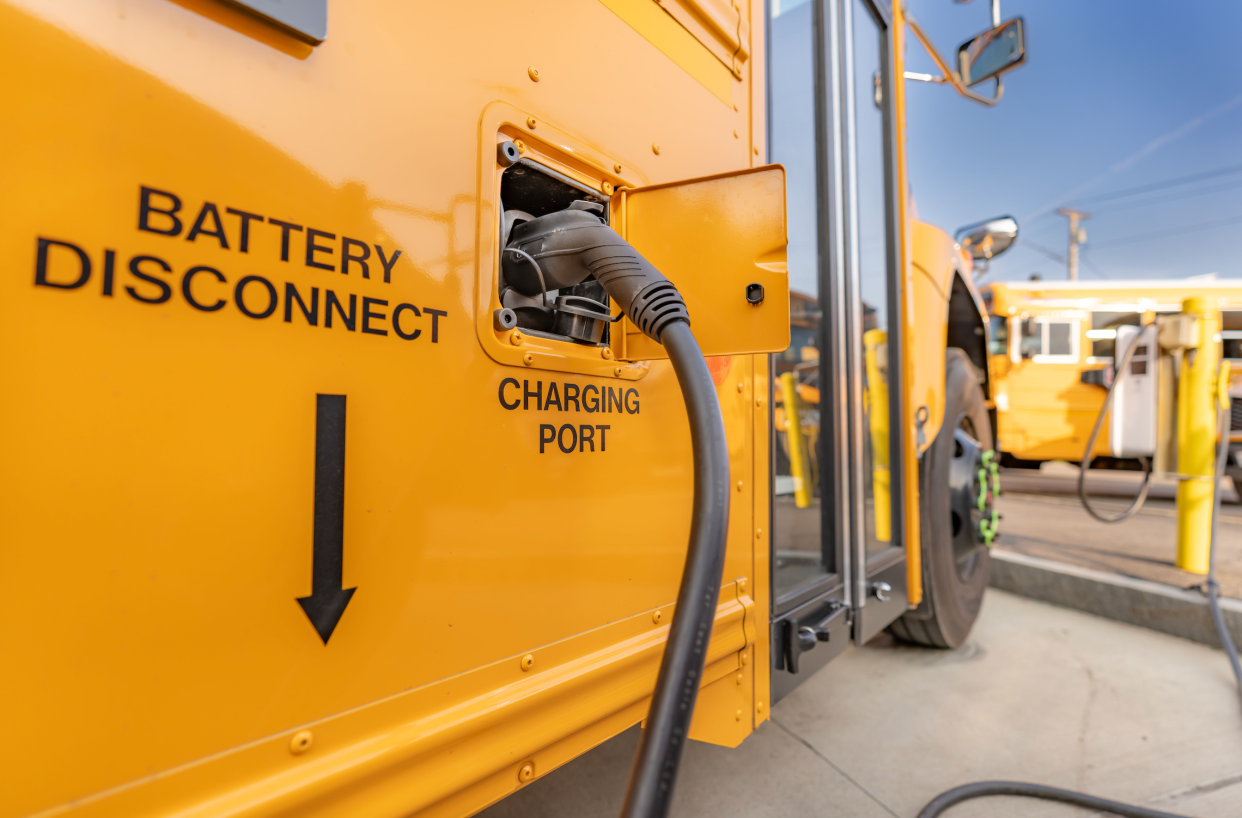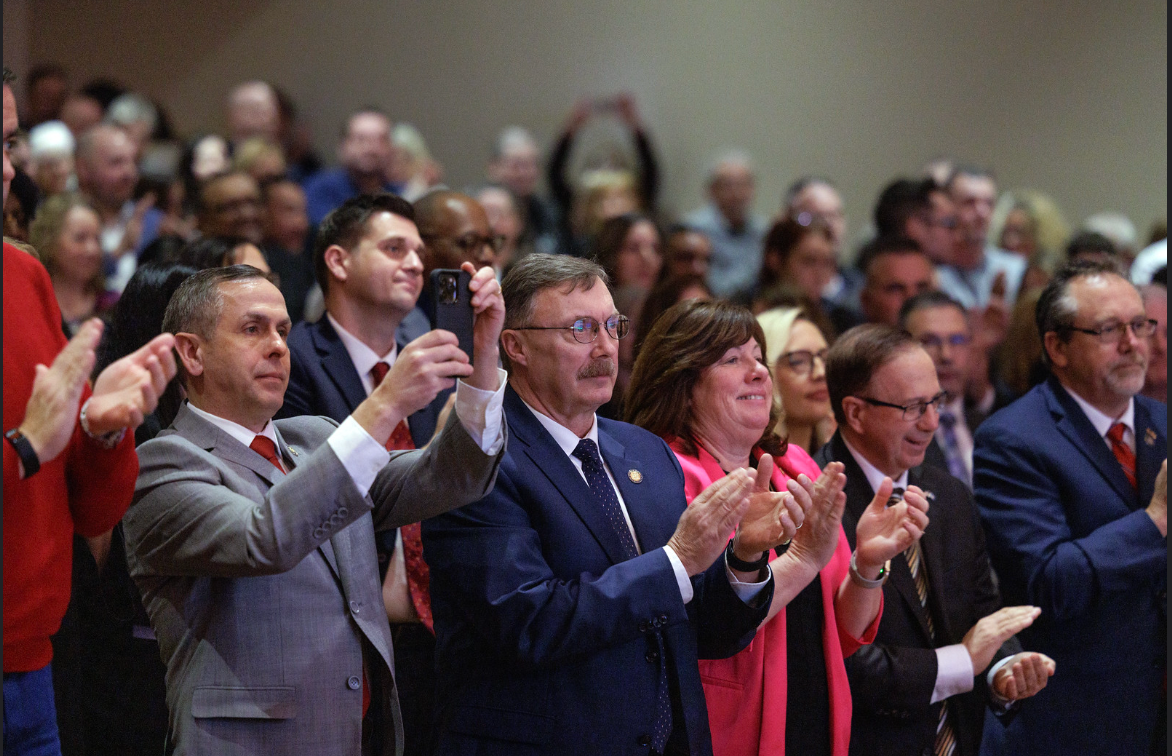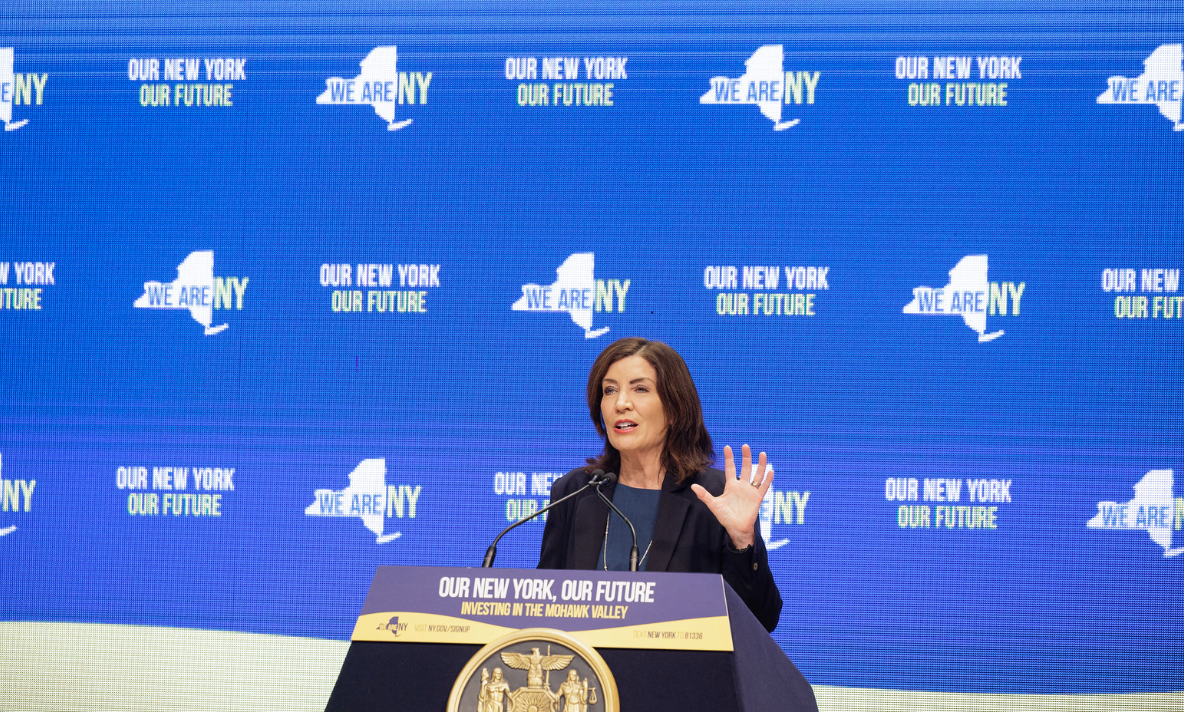Republicans look to 'pump the brakes' on New York's electric school bus mandate
Republican members of the New York Legislature have called for the state to “pump the brakes” on the 2027 statewide implementation of an electric school bus mandate.
State Sen. Joseph Griffo, R-Rome, and Assemblyman Robert Smullen, R-Meco, recently introduced legislation designed to allow school districts to opt out of the directive.
As part of last year’s state budget, all new school buses purchased in New York must be zero-emission by 2027 and all school buses in operation must become electric by 2035.

According to Griffo, the approach to electronic vehicle (EV) transition is flawed. Steamrolling a mandate without providing adequate funding won’t yield the results we’re looking for, he said.
“I’ve heard from many local superintendents who have expressed legitimate concerns about the mandate and how it will affect their districts,” Griffo explained. “These leaders should have a say in the matter. Politicians in Albany should not be deciding for them.”
What's on the table?
The proposed legislation, S8524/A9183, would provide districts with the option of submitting an opt-out waiver to permanently exempt them from the provisions required by the zero-emission school bus mandate.
“If the mandate is fully implemented throughout the state without additional financial support to help offset the costs of this complex transition to all-electric, our children will be the ones who ultimately pay the price,” Smullen said, in a statement. “The fiscal impact of not only purchasing new electric buses but also upgrading equipment and garages to charge them would cost school districts billions, leaving staff and students neglected in the wake of financial hardship.”
If signed into law the bill would take effect immediately.
In the meantime, Griffo has continued to call for a moratorium on the deadlines in the mandate so the policy can be reexamined, and a more reasonable and realistic approach determined.
He outlined possible next steps in an exclusive interview with the Observer-Dispatch.

Step one: moratorium
Last fall, Gov. Kathy Hochul made $100 million available through the New York State Energy Research Development Authority to help school bus fleet operators purchase zero-emission vehicles.
“Ensuring electric school buses are at the forefront of student transport is a critical health investment and demonstrates the benefits of clean energy while reducing harmful emissions to improve air quality and protect our precious environment,” Hochul said, in a statement.
The catch? While electric vehicles tend to have lower fuel costs they are less efficient in cold weather, local bus fleet coordinators say they aren’t “aren’t conducive to upstate New York’s winters.”
Each new electric bus could cost up to $400,000.
In October, Griffo called for a moratorium (S1444) on the state mandate.
“School officials and transportation directors believe the mandate is unreasonable and unrealistic and I concur,” said Griffo. “There’s an affordability and reliability issue at play. Ideology has motivated this policy, not common sense or data.”
The goal of the moratorium was to offer a pause – an opportunity to review public concerns, observe how EV buses operate during the winter, and ascertain whether or not the policy was the right approach, Griffo said.
But, state majorities overlooked the proposition. “So, we’ve decided to take things a step further and introduce a bill to allow school districts to opt out of the EV transition altogether,” he explained.
Step two: legislative bill
Griffo noted the bill stems from the fact districts are expected to make an expensive transition without adequate funding. It’s not an opposition to renewable energy but rather a reconsideration of our approach, he said.
According to Griffo, chief concerns among local stakeholders include: utility providers unable to provide adequate power to districts, fiscal challenges related to school bus and charging infrastructure acquisition, and lack of evidence proving zero-emission school buses are conducive to long bus routes or cold weather.
“Can we trust that EV’s will transport students, even in severe weather conditions?” asked Griffo. “At this point we can’t and that’s something to consider.”

Diversifying NY's energy portfolio
During Hochul’s recent visit to Herkimer College on Feb. 12, she outlined her Fiscal Year 2025 Executive Budget.
A total of $435 million would be devoted to climate resiliency statewide.
“We have to start dealing with the realities of climate change,” insisted Hochul. "We’re not going backwards anytime soon.”
While Griffo agreed he argued that it’s how we move forward that matters.
As former chair of the Senate Energy Committee he advocated for a diversified energy portfolio.
“We should pursue clean energy, solar and wind, but we should also look at nuclear energy," Griffo said. "Nuclear is a definitive source of clean energy that operates efficiently without gaps of intermittency. I raise this point to say that we shouldn’t be embracing just one concept, one approach, one bus mandate. The transition to renewable sourcing requires contemplation.”
Griffo was concerned by recent examples where EV’s experienced operational issues in the cold. He brought up the recent instance in Albany.
In December, the New York Power Authority received $20 million in federal tax funds to build four EV charging stations. Within five weeks all of the chargers were broken.
To help ease the transition, Griffo proposed hybrid electric options.
According to Camden Central School District Director of Transportation Andy Thompson, the district just bought two EV chargers and is looking to purchase hybrid electric vehicles next.
“Since the cold weather reduces EV battery capacity, smaller hybrid vans seem to be a viable option,” said Thompson. “Take for instance a 7-passenger hybrid van. After 30 miles the EV battery would get exhausted and you’d need a gas engine to kick in.”
Step three: litigation
If the bill does not get signed into law, Griffo said school districts may need to consider litigation.
“The bill won’t pass unless more districts start to make more noise and engage the public behind them,” added Griffo. “I suggest that locals begin to form coalitions. Taking into account EV failures and the lack of financial support from the state this transition would disrupt operations more than it would streamline efficiency.”
This article originally appeared on Observer-Dispatch: New York Republicans rally against state's EV school bus mandate
